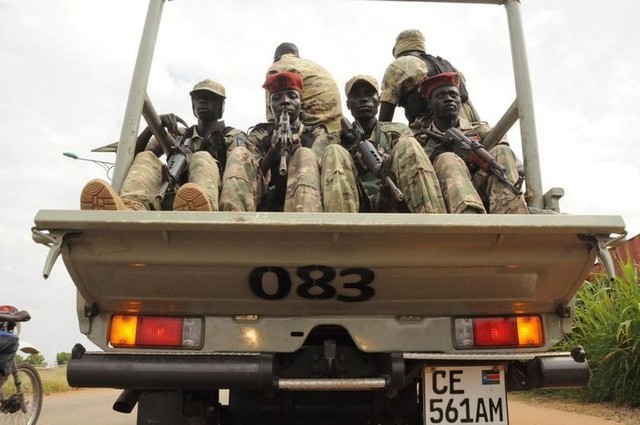U.S. struggling to win enough votes for South Sudan arms embargo


By Reuters
The United States is struggling to secure the minimum number of votes needed for the United Nations Security Council to impose an arms embargo on South Sudan amid U.N. warnings of possible genocide in the world’s newest state, said diplomats.
A resolution needs nine votes in favor and no vetoes to be adopted, but a senior U.N. diplomat, speaking on condition of anonymity, said so far only seven members were in favor, while the remaining eight were planning to abstain or vote no.
While Russia and China are skeptical of whether imposing an arms embargo on South Sudan would achieve much in a country already awash with weapons, diplomats didn’t expect them to block the measure if it was put to a council vote.
“No one is talking about a veto … There is a question about whether (the United States) can get to the nine positive votes or not,” said the senior diplomat, adding that some countries had argued they wanted more time to consider the move.
The diplomat said it was hoped that Malaysia, Japan, Senegal and Angola could be persuaded to vote in favor instead of abstaining if the draft resolution was put to a vote.
Japan last week began deploying a contingent of 350 troops to join a U.N. peacekeeping mission in South Sudan, which has been on the ground since the country seceded from Sudan in 2011.
Political rivalry between South Sudan’s President Salva Kiir, an ethnic Dinka, and his former deputy Riek Machar, a Nuer, led to civil war in 2013 that has often followed ethnic lines. The pair signed a shaky peace deal last year, but fighting has continued and Machar fled the country in July.
Adama Dieng, U.N. Special Adviser on the Prevention of Genocide, told the council this month he had seen “all the signs that ethnic hatred and targeting of civilians could evolve into genocide if something is not done now to stop it.”
The U.S. draft resolution would also blacklist South Sudan opposition figure Riek Machar, South Sudan army chief Paul Malong and South Sudan Information Minister Michael Makuei, subjecting them to a travel ban and asset freeze.
However, diplomats said these targeted sanctions could be dropped in order to win support for an arms embargo. Diplomats also said some countries wanted to know under what conditions an arms embargo could be lifted.